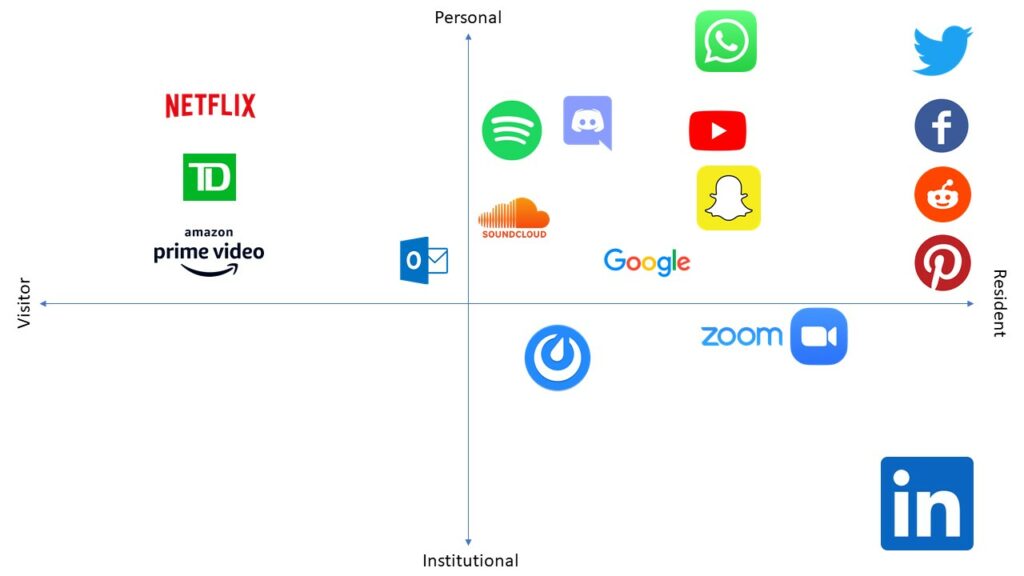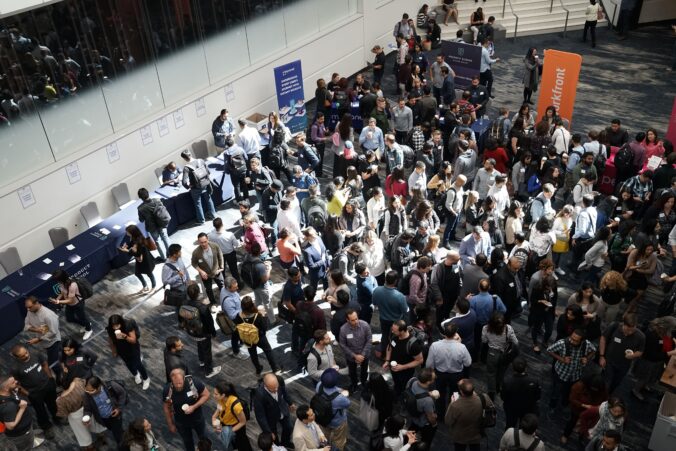LinkedIn is one popular for both professional, and educational learning network as it is well known and considered a standard for professional connections. Researchgate is a researched based social networking website that can be connected to LinkedIn. It seems more focused towards scientific , engineering, computer science, maths, and medicine research with similar recruitment themes of LinkedIn. Edmodo is a learning management system that one of my secondary school teachers used that included messaging and posts. But Edmodo is usually associated within one class at an educational facility, similar to Brightspaces. I assume that many learning connections happen between faculty members, and their superiors through email, and informal connections that are in person at conferences, or at workplaces.
As a student, I should be “getting out there” more and looking for more leaders in my industry (health information science/technology) and other related fields to keep up with trends and possibly investigate new ventures. Following both leaders, and emerging professionals will give me a good outlook on both sides of the spectrum to see what people are planning to do, and too see if I am interested in them. In addition, I should interact with articles on LinkedIn, and other people status updates to learn about other topics, and possibly create more connections. I should also try to maintain the current connections I have with previous course instructors, employers, and classmates by sending them emails regularly to see how their wellbeing is and how .
I think it is very possible for employers to search a name and find surface level information about a prospective candidate. Some things that might hinder this search is having strict privacy policy on certain pages, and profiles, having an alias, or having a common name. At the moment, I personally do not have a portfolio online for employers to search through. I do not have a lot of personal nor professional content that I have posted online as I am a fairly reserved person when it comes to these things. Although I should reconsider my attitude as more things happen, and as I find my path in the healthcare technology industry.
Here is a Visitor and Resident map about how I use digital platforms to interact with other online. Almost all of my online presence (very little) is personal and may require people to be in certain private group chats. It may be hard to find all social media accounts as they are under another alias. LinkedIn is my main professional networking tool as most people are on there to make professional connections.


Hey Neil,
Very informative blog post! I also like how you decided to visually display the apps! I would also agree that Linkedin is popular for both professional and educational uses and considered a standard for connection between people. I have never heard of Edmodo, but it sounds very interesting! Going to have to check it out and its abilities for educational development and networking.
Fantastic point regarding the use of Linkedin to see if you would be interested in new emerging topics within the field. I feel that Linkedin is such an easy platform, and we can easily have access to information that will change our perspective and allows us to understand new topics. One reason why Linked is such a powerful tool is because of the simplicity, being able to display information without much clutter.
I would also agree with you that it can quite be easy for employers to search prospective candidates online. Very good point mentioning that possible privacy policies can act as a roadblock in trying to find information about someone. Makes me think about the ability to conceal one’s identity while still being “active” on online platforms. Overall, really insightful blog post Neil!
Thank you
https://o-halabi.opened.ca/blog-post-2-vr-mapping/
Here is my blog response for Omar!
Hey Omar!
Thanks for sharing your wonderful V&R map with colourful logos! It’s good to see that you are using a variety of applications and websites to get your self out there.
You have a very interesting take on Twitter and I now also believe in the potential that it brings. If I think about it, Twitter is a short form communication, kind of like Tik Tok and YouTube shorts, but in text form (most of the time). I have not really used Twitter in the past, but I may consider to use it more in the future.
Your explanation of digital identity is spot on and you view on the risks and rewards of digital identity are definitely things that I think about on a daily bases. I have seen several people have their reputation harmed (Sometimes rightfully) based on things that they did, or said that was posted online with or without their permission. Once things get on the internet, they really do stay there forever.
-Neil